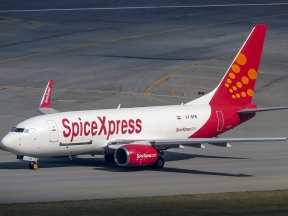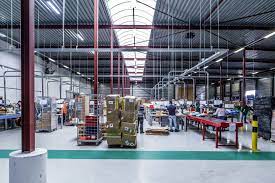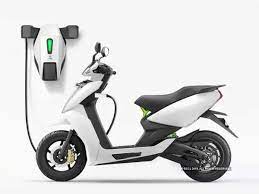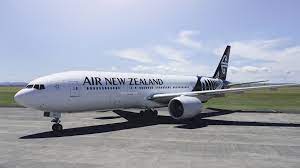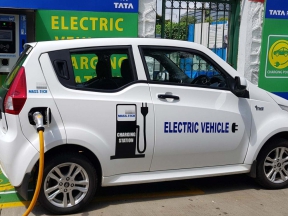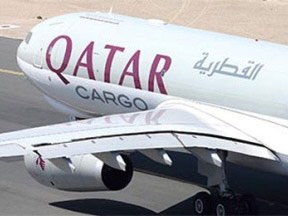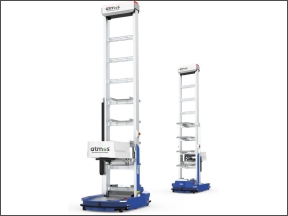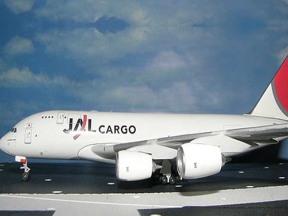SpiceXpress has confirmed acquiring electric cargo airplanes developed by US-based Bye Aerospace, in collaboration with India’s Pifore Group. The total investment is being estimated to be INR 300 to INR 500 million. The alliance is a pilot project to promote zero-emission freighters and also a closed airfield as emission free airport with an electric plane fleet and other zero-emission products. Pifore Group is engaged in provision of engineering, construction and technical services for private as well as public & government agencies/companies in India. They have signed an MoU with Bye Aerospace to deliver five electric cargo airplanes, which will be leased by SpiceXpress by 2024 and an additional five airplanes to be leased by 2026. Earlier this year, Spice Jet had transferred its logistics business to its subsidiary SpiceXpress and Logistics. SpiceXpress is a cargo specialist and is currently in the process of being hived off its parent company.
Read More »Shypmax and B2C Europe collaborate for European markets
Shypmax, India’s first and only AI-powered Logistics Platform as a Service (LPaaS) for cross border shipping, announces its collaboration with the Netherlands based B2C Europe, a Maersk company specializing in B2C parcel delivery services in Europe. The collaboration will enable Indian businesses to deliver their products to Europe, including the UK, based customers cost-effectively using a single-window platform. Shypmax, enables Indian companies, especially SMEs, Direct-to-customer, B2C, and E-commerce firms, from over 27,000 pin codes, to deliver any product across European markets and beyond. Shypmax automates processes related to compliance with current regulations in the European Union. As India’s first Import One-Stop-Shop (IOSS) ready facility enabling centralised declaration and payment of VAT by European customers at the point of sale, Shypmax is saving Indian companies and the European customers from the hassles of navigating through different tax systems in Europe. The services also include customised labels, pickup, packaging, and door-to-door delivery via more than 100 connected carriers across Europe and beyond by B2C Europe.
Read More »Indian real estate demand back to pre-covid levels
Occupier confidence has improved in the latter half of 2021 with occupiers closing large office deals, cementing the resilience of the sector and the underlying importance of offices. Occupiers remain focused on enhancing the well-being and experience of their employees as they plan to return to the office, chasing lucrative leases while realigning long-term plans. Developers are determined towards asset enhancement through requisite retrofit to remain relevant and retain tenants. “The year 2021 was a watershed moment for India’s real estate sector. Even when the going was tough, the sector not only remained resilient but also emerged stronger than expected. India’s office sector is coming out of the woods, with demand back to pre-record levels. The year 2022 will even be better, even if marred by the new Covid-19 variant. We have now learned to live with uncertainty. Gross absorption in 2022 should be about 15-20% higher than this year as occupier confidence is back in the market. In terms of global capital chasing real estate, the office will continue to remain a dominant sector, but residential and industrial & warehousing will strengthen in 2022 aided by strong business fundamentals,” said Ramesh Nair, CEO, India and Managing Director, Market Development, Asia, Colliers.
Read More »Hero Electric and BattWheelz to electrify last-mile delivery
With a recent collaboration, India’s leading electric scooter company Hero Electric and Gurugram-based last mile mobility solutions start-up BattWheelz have joined forces to electrify last mile deliveries. BattWheelz offers mobility solutions to e-commerce and hyperlocal grocery companies and with this collaboration, it plans to deploy nearly 4,000 electric two-wheelers by FY23. “Our constant endeavour is to hasten the electric mobility transition in India and thrusting the same through our B2B partnerships with complete EV solutions across India. This partnership highlights our shared vision of offering eco-friendly mobility solutions and the direct advantage of adopting electric mobility in terms of savings and contribution to safeguarding the environment.” said Sohinder Gill, CEO, Hero Electric.
Read More »Air New Zealand releases document to deploy zero-emissions aircraft
Air New Zealand aims to deploy zero-emissions aircraft in the next five years. The airline has released a Zero Emissions Aircraft Product Requirements Document that details Air New Zealand’s specifications and requirements for a new generation of aircraft. Air New Zealand said it “is seeking long term partnerships with aircraft developers looking to develop zero emissions aircraft. From the PRD process Air New Zealand is seeking to gain an understanding from the aircraft developers of the realistic implementation timeline and technology feasibility to enable long term fleet strategy evaluation”. The overall goal is for zero-emissions aircraft to be deployed in the next five years, with battery electric propulsion, hybrid electric propulsion and green hydrogen propulsion being considered. Air New Zealand’s decarbonisation roadmap identifies four main levers needed to reach net zero by 2050. These are the use of sustainable aviation fuel (SAF); the operation of zero emissions aircraft; continued investment in the modern fleet replacement programme; and improvements in operational efficiencies (such as through optimised flight planning).
Read More »Delhi govt. pushes the use EV to curb pollution
The Delhi government is asking e-commerce companies, food delivery services and cab aggregators to completely switch to electric vehicles as it aims to increase the EV share in total vehicle sales to 25 percent by 2024 to check air pollution, according to officials. It is also going to ask dealers and petrol pumps to not give fuel to vehicles without a pollution-under-check (PUC) certificate. Vehicle emissions account for around 40 percent of the city’s air pollution. “The government is going to take two major steps to check vehicular pollution – we will ask all aggregators including Zomato, Swiggy, Ola, Uber, etc. to completely switch to electric vehicles. These services account for 30 percent of the registered vehicles in Delhi,” said an official. “We are also considering directing dealers and petrol pumps not to supply fuel to vehicles without a (valid) PUC certificate,” he said. Directions under the Environment (Protection) Act in this regard are expected to be issued this week.
Read More »DHL, MIAL and Kale Logistics partners for paperless import operations
DHL Global Forwarding announces a collaboration with Mumbai International Airport Ltd. (MIAL) and Kale Logistics for the pilot rollout of D-Cube for paperless and contactless import operations. Soon MIAL will not require hard copies of MAWBs (Master airway bill) and HAWBs (House airway bill) to be submitted by DHL Global Forwarding, said Niki Frank, CEO South Asia and India, DHL Global Forwarding in a Linkedin post. This digital initiative facilitates ease of business to support all forwarders, customs brokers, transporters and customers, on the air import businesswith a ‘contactless’ and ‘paperless’ process, fast-tracking the deliverables factoring safety and security. The post read that queues at the Air Cargo Terminal will become a thing of the past with Digitalized Gate Passes to shortly be introduced. Being a major air cargo player at the Mumbai Terminal, DHL Global Forwarding volunteered to support this progressive initiative and played a significant role in its implementation. A well-aligned move to DPDHL’s own digitalization mission.
Read More »Qatar Airways leads to perform Carbon Exchange Transaction with IATA
Qatar Airways and the International Air Transport Association (IATA) announced that Qatar Airways became the first carrier to make a transaction on the IATA Aviation Carbon Exchange (ACE) using IATA Clearing House (ICH). The IATA Aviation Carbon Exchange (ACE) is a centralised marketplace where airlines and other aviation stakeholders can trade CO2 emission reduction units for compliance or voluntary offsetting purposes. IATA and Qatar Airways reach another landmark milestone that encourages carbon markets to respond to the needs of the aviation sector. This initiative enables opportunities to simplify processes to ensure the successful implementation of Carbon Offsetting and Reduction Scheme for International Aviation (CORSIA) adopted by the International Civil Aviation Organization (ICAO), while also supporting the successful implementation of voluntary offsetting programmes. With Qatar Airways making the ACE transaction using IATA Clearing House (ICH), it benefits from the IATA Settlement Systems and Clearing House for seamless and risk-free settlement of funds.
Read More »Atmos Systems introduces A42N, enhancing warehouse robotics
Atmos Systems, leading name enabling widespread warehouse automation, has introduced Atmos A42N – an autonomous case handling robotic (ACR) system that can significantly enhance both inbound and outbound efficiency of a warehouse. Following thorough research and development, the A42N robots comes with an increased load capacity of 150 kg and is engineered to support cases of various size and material. The system is loaded with easy to use features, thereby providing higher flexibility for warehouse location. Speaking about the innovative product, Atmos Systems co-founders Khursheed Alam and Faraz Alam said, “The idea behind the development of Atmos A42N is to boost the storage density of a warehouse by at least 80-130%. It connects with the warehouse’s business management systems, it supports both operations and analytics. Also, as it is based on reinforcement learning and deep learning, it ensures optimized scheduling of multiple robots along while ensuring real-time monitoring and pre-alert malfunction.”
Read More »Japan Airlines partners with CHAMP Cargosystems for next five years
Japan Airlines (JAL) and CHAMP Cargosystems have extended their partnership for next five years. By extending their partnership with CHAMP, Cargospot will remain the IT keystone of JAL’s cargo business, enabling the airline to take advantage of the solution as it continues to evolve for the benefit of CHAMP’s large and growing customer community. The carrier has been using CHAMP’s acclaimed Cargospot solution to manage its day-to-day cargo business processes since 2014. Since then, JAL has partnered with CHAMP in a series of ground-breaking digital transformational projects built around the Cargospot ecosystem, including the launch of a cargo business platform that enables a fully digitalized end-to-end process across the airline’s domestic operation and a unique API-based solution that allows the airline’s customers to compare and book against multiple air-to-air and ground transportation options.
Read More » Cargo Breaking News
Cargo Breaking News
